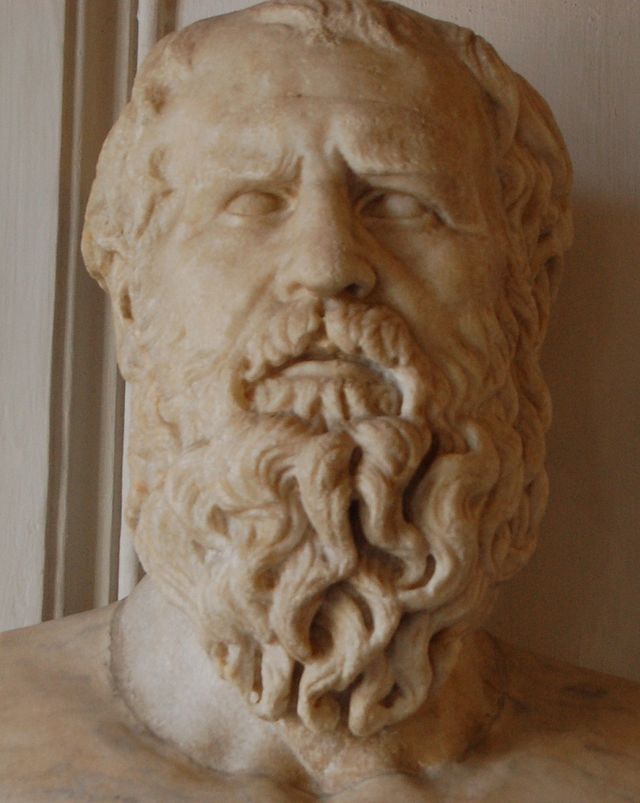Reference




OpenAI's Answer
Heraclitus' philosophical fragments are often referenced using numbers assigned by various scholars over time, with the most widely recognized system being the Diels-Kranz (DK) numbering. Here are some details about the numbering systems:
-
Diels-Kranz (DK) Numbering: This is the most commonly used system, where fragments are often cited as "DK" followed by a number. This system categorizes fragments into primary (A) and testimonia (B) sources.
-
Bywater Numbering: Numbers assigned by Ingram Bywater in "Heracliti Ephesii reliquiae" (1877). These numbers are often referenced in older scholarly works.
-
Burnet Numbering: John Burnet's "Early Greek Philosophy" also contains a set of fragment numbers. These are sometimes used in conjunction with or in place of DK numbers.
-
Secondary and Miscellaneous Numberings: Other scholars like G. W. T. Patrick have also translated and assigned their own numbering to Heraclitus' fragments.
For example, Fragment 53 in the DK system says "War is the father of all and King of all," which might be cited differently in other systems.
For more specific references:
- Wikipedia on Diels-Kranz Numbering
- Fragments of Heraclitus on Wikisource
- Stanford Encyclopedia of Philosophy - Heraclitus
Here are some images that are relevant:


The variety in numbering systems can occasionally cause confusion, so it’s always best to provide context or refer to the specific edition of Heraclitus’ work being discussed.
Follow Up
Related
Which fragments attributed to Heraclitus are disputed by classicists and professors?
Which philosophers have suggested tentative orderings of Heraclitus' fragments?
How did Schleiermacher contribute to the study of Heraclitus's fragments?
What interpretation of Heraclitus' fragment suggests 'the kingdom is a child's'?